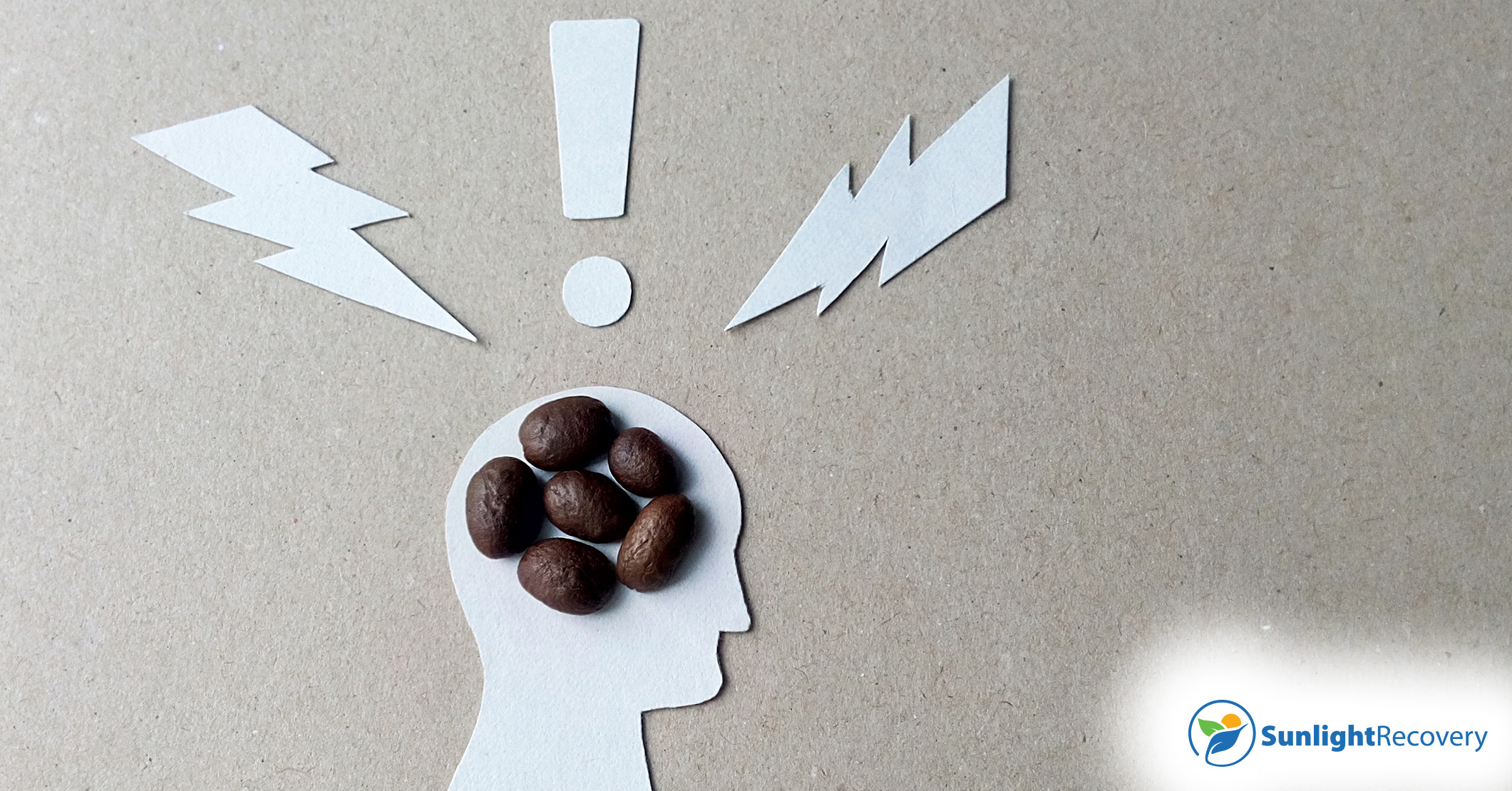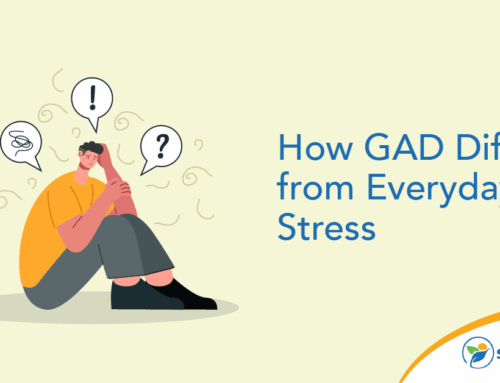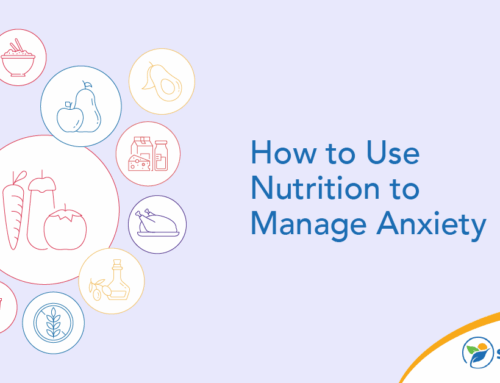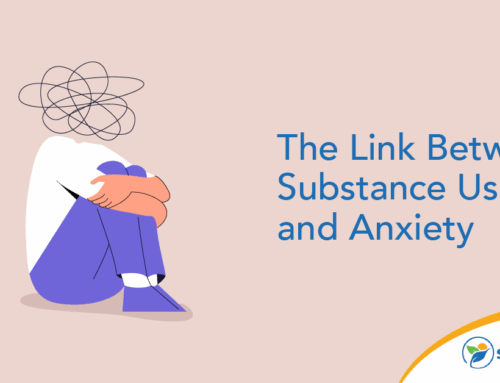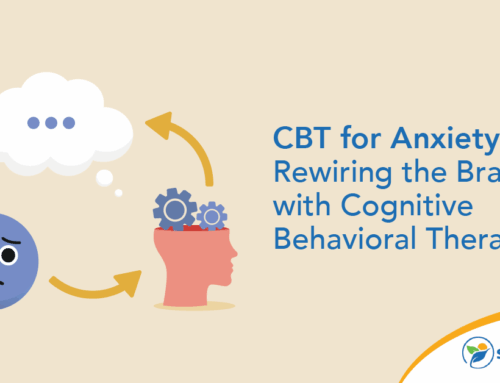Adults in the U.S. consume an average of 135 milligrams of caffeine per day, and the stimulant is one of the most widely used drugs in the United States. Like any drug, caffeine can cause side effects in some people. Over the past few decades, researchers have worked to determine if a caffeine and anxiety correlation exists, and understanding what the science says about the connection can help you make an informed decision about whether to continue enjoying caffeine the way you currently do.
Understanding Anxiety
Before you can fully understand the facts about caffeine and anxiety correlation, it’s important to know what anxiety is. Anxiety is a feeling of uneasiness, nervousness or dread. Common symptoms of anxiety include:
- Difficulty concentrating
- Fatigue
- Having a sense of impending doom or danger
- Increased heart and breathing rates
- Restlessness
- Sleep problems
- Stomach problems, such as nausea or diarrhea
- Sweating
- Trembling
Nearly everyone experiences anxiety at various times in their lives, especially during times of stress. However, when someone suffers from anxiety on an ongoing, persistent basis and it interferes with their daily life, that person may be diagnosed with an anxiety disorder. For those living with anxiety disorders, a treatment plan that includes lifestyle changes, therapy and possibly prescription medications may help control symptoms.
Is There a Caffeine and Anxiety Correlation?
Based on the body of research performed so far, caffeine isn’t believed to cause anxiety disorders. In fact, one recent cohort study involving 146,566 participants in the UK found that consuming 2 to 3 cups of caffeinated coffee per day was actually less likely to cause anxiety disorders.
However, the findings don’t suggest that caffeine is a treatment for preventing anxiety. The study simply uncovered an association between moderate caffeine intake and a lower risk for anxiety. More research is necessary to confirm that this association exists and explore the reasons why it might.
When experts speak about a caffeine and anxiety correlation, they’re most often referring to the effects of excessive caffeine intake. Caffeine is a stimulant, meaning it activates the nervous system. If you consume too much, it can cause symptoms similar to anxiety, such as rapid heartbeat, insomnia and restlessness. For people who have anxiety disorders, the effects of caffeine may worsen symptoms, especially when they consume large amounts of it.
Caffeine Sensitivity and Mental Health
The degree to which caffeine stimulates the nervous system varies from person to person. Some people have the ability to drink multiple cups of coffee every day and have no adverse effects, while others may begin to feel jittery or restless after consuming just one cup.
A heightened response to caffeine is known as caffeine sensitivity. Those with caffeine sensitivity are more prone to experiencing side effects from consuming foods and drinks that contain the drug and may be more at risk for anxiety symptoms related to caffeine intake as a result. If you have caffeine sensitivity and an anxiety disorder, limiting your intake may help lessen your symptoms.
Keep in mind that how the body responds to caffeine can change over time. Often, caffeine sensitivity increases with age, so you may find that you can no longer drink as much coffee or tea as you once did as you grow older.
Recognizing Symptoms of Caffeine-Induced Anxiety
For people with anxiety disorders, identifying triggers and taking steps to avoid or reduce exposure to them is often an important part of treatment, so determining whether you experience caffeine-induced anxiety is a good first step.
One way to identify anxiety triggers in caffeine intake is to keep a journal that details what you eat and drink during the day and what anxiety symptoms you experience. If it turns out that your symptoms tend to be worse on days when you consume more caffeine, it’s likely the drug could be a trigger.
Due to the stimulant effects of caffeine, it’s possible to experience anxiety if you consume large amounts, even if you don’t have an anxiety disorder. Recognizing the other side effects of caffeine usage can help you determine if your caffeine intake is connected to your anxiety. These symptoms include:
- Increased urination
- Nausea and vomiting
- Rapid heart rate
- Restlessness
- Tremors
- Trouble falling or staying asleep
Managing Caffeine Intake for Anxiety Reduction
If you suffer from an anxiety disorder, reducing your daily intake of caffeine may be beneficial. Here are some tips for managing caffeine and anxiety to help you get started.
Start Slowly
Quitting caffeine cold turkey can lead to withdrawal symptoms, such as irritability, headaches, drowsiness and nausea. As a result, gradually decreasing the amount of caffeine you consume daily is usually a better approach. For example, you might go from drinking six cups of coffee per day to five. After a week or two, you could then cut back to four and so on until you notice a difference in your symptoms.
Look for Substitutes
Substituting caffeine-free drinks and foods for what you currently enjoy can make cutting back simpler. Give decaffeinated coffee or herbal tea a try. If you love chocolate, try white chocolate, as it’s made without chocolate solids and usually caffeine-free. Enjoy a glass of water infused with fruit or a no-added-sugar fruit juice instead of an energy drink.
Watch Out for Supplements and Over-the-Counter Medications
Foods and beverages aren’t the only sources of caffeine. The drug is also found in some over-the-counter medications for headaches and premenstrual syndrome, and manufacturers may add it to dietary supplements for weight management and energy and focus support. Check the labels of any medications or supplements you take to see if they contain caffeine.
Consulting Health Care Professionals for Personalized Guidance
In addition to following the above tips, talk to your health care provider about your concerns. Because everyone’s body is unique, your health care provider is in the best position to give you personalized advice about how much caffeine you should have daily and how best to reduce your intake. In addition, they can help you determine whether you’d benefit from treatment for your anxiety symptoms.
Getting Help for Anxiety
If anxiety is standing in the way of your daily life, help is available. At Sunlight Recovery, our team of professionals can develop a custom-tailored treatment plan to address your symptoms and help control anxiety. Contact us today and take the first steps toward reducing anxiety.


